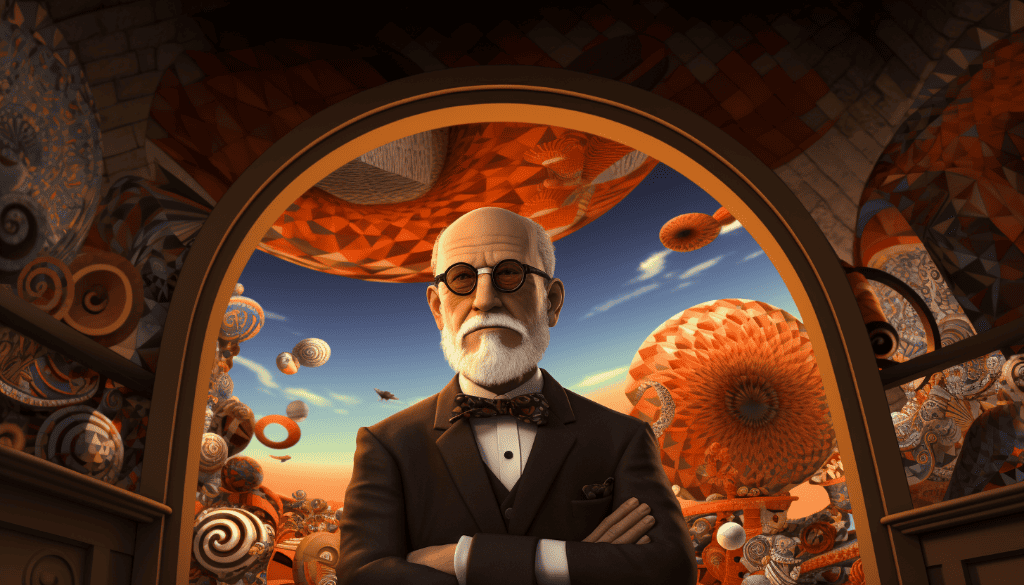George Berkeley, an influential figure in the realm of philosophy during the early 18th century, is best known for his radical ideas that challenged the prevailing notions of materialism and empiricism. His philosophy, often encapsulated in the phrase “esse est percipi” or “to be is to be perceived,” posits that the existence of objects is dependent on their being perceived by a conscious mind. This idealist perspective diverges sharply from the materialist view that posits an independent reality existing outside of human perception.
Berkeley’s work invites us to reconsider the nature of reality itself, emphasizing the role of perception in shaping our understanding of the world. Berkeley’s ideas were not merely theoretical musings; they were a response to the scientific advancements and philosophical debates of his time. He sought to counteract the growing skepticism regarding the existence of God and the spiritual realm, which he believed were essential to a coherent understanding of reality.
His philosophy remains relevant today, particularly as we navigate increasingly complex digital landscapes that challenge our traditional notions of reality.
Key Takeaways
- George Berkeley was an influential philosopher known for his idealist philosophy, which posits that reality is fundamentally mental or immaterial.
- Berkeley believed that the nature of reality is dependent on perception and that objects only exist as they are perceived by the mind.
- When applying Berkeley’s philosophy to the Metaverse, it becomes evident that the digital world aligns with his views on the nature of reality.
- According to Berkeley, the Metaverse offers the potential for positive experiences and interactions, as it is ultimately a construct of the mind.
- However, Berkeley also warns of the negative aspects of the Metaverse, such as the potential for detachment from physical reality and the risk of prioritizing virtual experiences over real-world connections.
George Berkeley’s Views on the Nature of Reality
The Nature of Reality
At the core of Berkeley’s philosophy lies a profound inquiry into the nature of reality itself. He argued that what we consider to be the physical world is not a collection of material substances but rather a series of ideas and perceptions. For Berkeley, objects do not possess an existence independent of our sensory experiences; instead, they are collections of qualities that are perceived by observers.
Radical Idealism and the Re-evaluation of Existence
This radical idealism suggests that reality is fundamentally mental rather than material, leading to a re-evaluation of how we understand existence. Berkeley’s rejection of materialism was not merely an abstract philosophical stance; it was also a critique of the limitations inherent in human perception.
Perception and the Collective Understanding of Reality
In this light, reality becomes a tapestry woven from countless perceptions, each contributing to a collective understanding. This perspective invites us to consider how our interactions with the world—both physical and digital—are mediated by our perceptions, raising questions about the authenticity and permanence of what we deem real.
Implications of Berkeley’s Philosophy
Berkeley’s philosophy encourages us to think critically about the nature of reality and our place within it. By recognizing the role of perception in shaping our understanding of the world, we can gain a deeper appreciation for the complex and multifaceted nature of reality.
Applying Berkeley’s Philosophy to the Metaverse

As we delve into the contemporary phenomenon of the Metaverse—a collective virtual space where users interact through digital avatars—Berkeley’s philosophy offers intriguing insights. The Metaverse can be seen as a manifestation of his idealist principles, where reality is constructed through shared perceptions and experiences. In this digital realm, objects and environments exist only as long as they are perceived by users, echoing Berkeley’s assertion that existence is contingent upon perception.
In the Metaverse, users create and manipulate their environments, blurring the lines between reality and illusion. This aligns with Berkeley’s view that reality is not fixed but rather fluid and subject to change based on individual experiences. The virtual world challenges traditional notions of existence, as users can inhabit spaces and interact with objects that have no physical counterpart in the material world.
This raises profound questions about identity, agency, and the nature of reality itself—questions that Berkeley would likely find compelling as they resonate with his philosophical inquiries.
Positive Aspects of the Metaverse According to Berkeley
From Berkeley’s perspective, the Metaverse presents several positive aspects that align with his idealist philosophy. One significant advantage is its potential for fostering community and connection among individuals across geographical boundaries. In a world where physical distance often hinders interaction, the Metaverse allows people to engage in shared experiences, creating a sense of belonging that transcends traditional limitations.
This communal aspect echoes Berkeley’s belief in the importance of perception and shared experience in shaping reality. Moreover, the Metaverse offers opportunities for creativity and self-expression that can enhance individual identity. Users can craft their avatars and environments, allowing them to explore facets of themselves that may not be accessible in their physical lives.
This aligns with Berkeley’s emphasis on the role of perception in constructing reality; in the Metaverse, individuals can curate their experiences and identities in ways that reflect their inner selves. The ability to shape one’s environment and interactions can lead to a richer understanding of oneself and one’s place in a broader community.
Negative Aspects of the Metaverse According to Berkeley
However, Berkeley would also likely express concerns regarding certain negative aspects of the Metaverse. One significant issue is the potential for disconnection from physical reality. As users immerse themselves in virtual environments, there is a risk that they may become detached from their immediate surroundings and relationships.
This detachment could lead to a diminished appreciation for the tangible world, undermining Berkeley’s assertion that perception is fundamental to existence. If individuals prioritize virtual experiences over real-life interactions, they may inadvertently neglect the richness of their physical lives. Additionally, the Metaverse raises questions about authenticity and manipulation.
In a space where identities can be constructed and deconstructed at will, distinguishing between genuine interactions and curated personas becomes increasingly challenging. This aligns with Berkeley’s concerns about perception; if reality is shaped by individual experiences, then how do we ascertain what is real in a world where everything can be altered? The potential for deception and misrepresentation in the Metaverse could lead to ethical dilemmas that complicate our understanding of truth and existence.
The Role of Perception and Experience in the Metaverse

Shaping Reality through Interaction
In the Metaverse, users engage with a multitude of stimuli that shape their understanding of reality. Each interaction, whether with other users or virtual objects, contributes to an evolving tapestry of experiences that define one’s existence within this space.
Constructing Reality through Perception
This mirrors Berkeley’s assertion that reality is constructed through perception. In the Metaverse, individuals actively participate in creating their own realities through their interactions. Moreover, the subjective nature of experience in the Metaverse highlights Berkeley’s emphasis on individual interpretation.
The Multiplicity of Experience
Each user brings their own perspectives, emotions, and backgrounds into this virtual realm, resulting in diverse interpretations of shared experiences. This multiplicity enriches the Metaverse but also complicates our understanding of collective reality. Just as Berkeley argued that our perceptions shape our understanding of existence, so too does each user’s unique experience contribute to a broader understanding of what it means to exist within this digital space.
Berkeley’s Perspective on the Ethical Implications of the Metaverse
As we consider the ethical implications of the Metaverse through Berkeley’s lens, several critical issues emerge. One significant concern is privacy and consent within virtual environments. In a space where personal data can be collected and manipulated, users must navigate complex ethical landscapes regarding their information and identity.
Berkeley’s emphasis on perception suggests that individuals should have agency over how they are perceived and represented in these digital realms; thus, ethical considerations surrounding consent become paramount. Furthermore, issues related to mental health and well-being arise within the context of immersive virtual experiences. The potential for addiction or escapism in the Metaverse could lead individuals to prioritize virtual interactions over real-life connections, echoing Berkeley’s concerns about disconnection from physical reality.
As users engage more deeply with digital environments, it becomes essential to consider how these experiences impact their overall well-being and sense of self. Ethical frameworks must be established to ensure that individuals can navigate these spaces safely while maintaining a healthy balance between virtual and physical realities.
George Berkeley’s Insights on the Metaverse
In conclusion, George Berkeley’s philosophy offers profound insights into our understanding of reality as we navigate the complexities of the Metaverse. His idealist perspective challenges us to reconsider how we perceive existence in a world increasingly dominated by digital interactions. While the Metaverse presents opportunities for connection and creativity, it also raises significant ethical concerns regarding authenticity, privacy, and mental health.
Berkeley’s emphasis on perception as fundamental to existence serves as a guiding principle as we explore these new frontiers. As we engage with virtual environments that blur the lines between reality and illusion, we must remain mindful of how our perceptions shape our understanding of ourselves and our relationships with others. Ultimately, Berkeley’s insights remind us that while technology may transform our experiences, it is our perceptions—rooted in consciousness—that define our reality, both in physical spaces and within the expansive realms of the Metaverse.
If we were to interview the philosopher George Berkeley about the metaverse, he would likely emphasize the importance of perception and reality in this virtual world. In a related article on the significance and impact of the metaverse (source), Berkeley might argue that the metaverse blurs the lines between what is real and what is perceived, challenging our understanding of existence. He may also discuss the positive aspects of the metaverse, such as the potential for creativity and innovation, but caution against the negative aspects, such as the potential for disconnection from the physical world and the dangers of losing touch with reality.
FAQs
Who is George Berkeley?
George Berkeley was an Irish philosopher who is best known for his theory of immaterialism, which asserts that the physical world exists only in the perceptions of the mind.
What is the metaverse?
The metaverse is a collective virtual shared space, created by the convergence of virtually enhanced physical reality and physically persistent virtual reality.
What would George Berkeley say about the metaverse?
George Berkeley would likely argue that the metaverse is a manifestation of his theory of immaterialism, as it exists only in the perceptions of the mind. He would likely emphasize the idea that the metaverse is a construct of the mind rather than a physical reality.
What positive aspects of the metaverse would George Berkeley highlight?
George Berkeley might highlight the potential for the metaverse to provide new opportunities for social interaction, creativity, and exploration. He might also emphasize the ability of the metaverse to transcend physical limitations and provide access to experiences that may not be possible in the physical world.
What negative aspects of the metaverse would George Berkeley point out?
George Berkeley might express concerns about the potential for the metaverse to further disconnect individuals from the physical world and reality. He might also caution against the potential for the metaverse to perpetuate a sense of detachment from genuine human experiences and interactions.











Leave a Reply